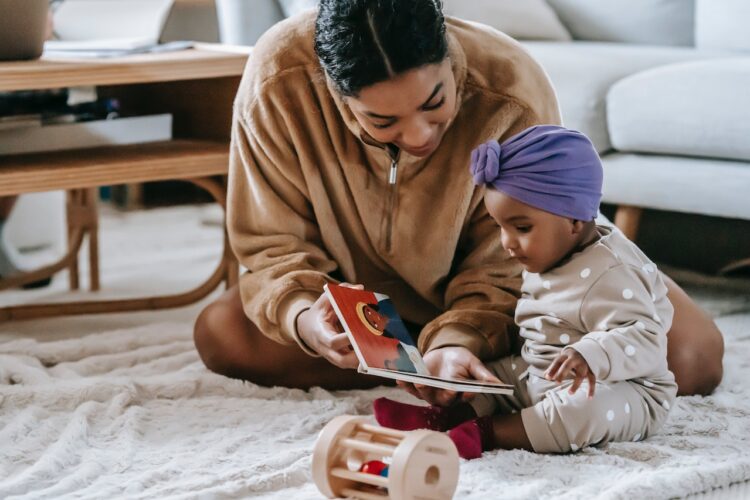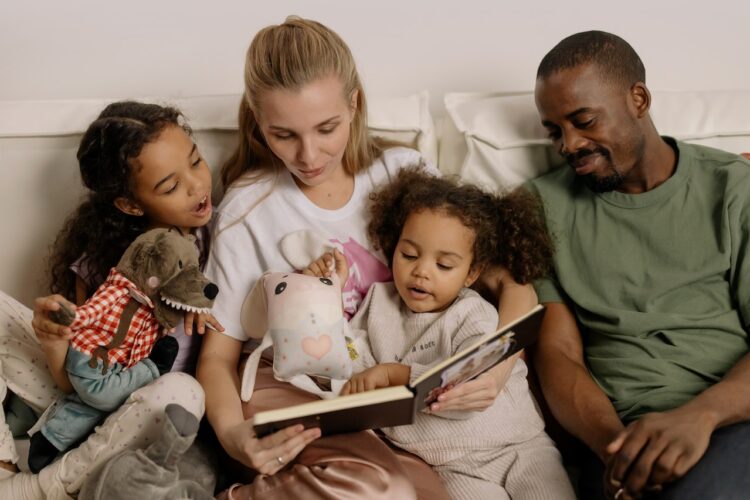Reading books to your children is an important part of their development, but it’s not always easy to know when to start. It can be difficult to forecast how much your child will understand and be able to absorb. Even more challenging is deciding what type of books are most appropriate for your little ones. As the parent or caregiver, you are the best judge of when and what should be read aloud.
From board books to picture books, there are a variety of options available for young children. Some of them like Book and Bear may even include toys and other gifts to get your child interested. Each style has its own age-appropriate topics and reading level that can help you choose which types of stories will be most enjoyable and complementary to your child’s learning experience. From story time in a library setting to engaging games, or special one-on-one time with an adult reader – incorporating books into your child’s life can provide them with many benefits as they grow.
Benefits of Books

Reading books to your kids can provide a number of physical, emotional, and educational benefits. Research has found that reading to children helps build their vocabulary, improves language development, increases concentration, and enriches their imagination.
Engaging in this activity with your kids can also help create an unbreakable bond between parent and child.
Reading aloud from age-appropriate books will help improve a child’s reading comprehension when they start to learn how to read on their own. It helps children develop critical early literacy skills, including alphabet knowledge and phonemic awareness. It also improves listening comprehension in babies as young as 4 months old.
Plus, research suggests that there are cognitive benefits associated with being read to in childhood. Studies have shown that reading to children increases creativity, builds memory span, and encourages problem-solving abilities later in life.
Additionally, it creates special moments between parents and children while providing quality family time. Not only will these sessions become some of your child’s fondest memories but they will also help create an emotional bond between the parent or caregiver and the child that promotes long-term relationships.
When to Start?

For infants, books help develop language skills by promoting communication between parent and child at an early age. Even young infants can respond to the sound of your voice and to the pictures you show them. Make a habit of reading aloud every day – it’s a great way for you and your baby to bond over books.
Toddlers learn best from stories with strong images, repetition, patterns, and predictable rhyme. Board books with thick pages made for little hands are great for this age. Look for books with bright colors that feature familiar objects like animals or toys as this will keep their attention longer – and be sure to act out what happens in each book to really let your kid get into the story-time mood!
Around three or four years old when most kids start attending preschool, actively engaging in longer story times helps sharpen their literacy skills. Age-appropriate pictures or chapter books filled with captivating characters and exciting stories may help spark kids’ imaginations as well as encourage budding readers who already know letter sounds and words within simple sentences. Be sure to ask questions throughout the story so they can practice comprehension skills while they listen attentively.
So remember: Start reading early! From day one of your baby’s life, you will be helping them get ready for school while spending quality time together.
Tips for Reading to Kids

When you’re reading to your children, the goal is to turn the book into an interaction between the reader and the listener. Here are some tips to follow when reading aloud:
- Choose books appropriate for your child’s age, abilities, and interests. Allow your toddler to pick out books to help them learn about the subject matter they’re interested in.
- Make sure you have a comfortable environment for reading. Make sure there aren’t any distractions in the room.
- Take time to look at the pictures together; it helps build connections between language comprehension, story development, and illustrations.
- Ask questions related to what’s happening on each page. This helps foster language development as children develop new words by using their own understanding of objects in relation to words they’ve heard before.
- Encourage conversation – Invite your child to tell you their stories based on what they see or discuss setting details if that topic interests them. It doesn’t necessarily matter how off-topic it gets!
- Read with fun voices – Kids enjoy hearing stories with different funny voices for different characters and exaggerated facial expressions/actions can help keep attention focused on a page or scene for long periods of time.
- Participate in singing songs or reciting rhymes together – Help create memories at an early age by exposing them to different types of music and help strengthen phonemic awareness through nursery rhymes or fingerplays with motions (e.g., 5 Little Monkeys / If Your Happy & You Know It.)
Making Reading a Part of Everyday Life

Reading with your children should be a special time for you both. A book or story should be chosen for its subject matter; age-appropriate stories will help keep things interesting for your child, as well as introduce them to new ideas and concepts. Consider finding books about topics that your child is already interested in, or ones featuring favorite characters from TV shows or movies they watch.
Make reading a part of everyday life by incorporating it into their bedtime routine, scheduling regular story time in the house, or taking trips to the library together – all these activities can be great opportunities for fostering a love of learning with young readers! To start, aim to read one or two books every day with your child. You can also look out for fun reading activities like writing stories based on what was read together, making up games related to the stories (or character names), and drawing illustrations that bring the stories alive.
Encouraging early literacy skills starts at home – so making reading a part of everyday life is sure to lay positive foundations for budding readers!
Conclusion
At the end of the day, reading to your child is a memorable and important milestone in your child’s early development. It helps to build strong bonds and creates a bonding experience that can last for years to come.







